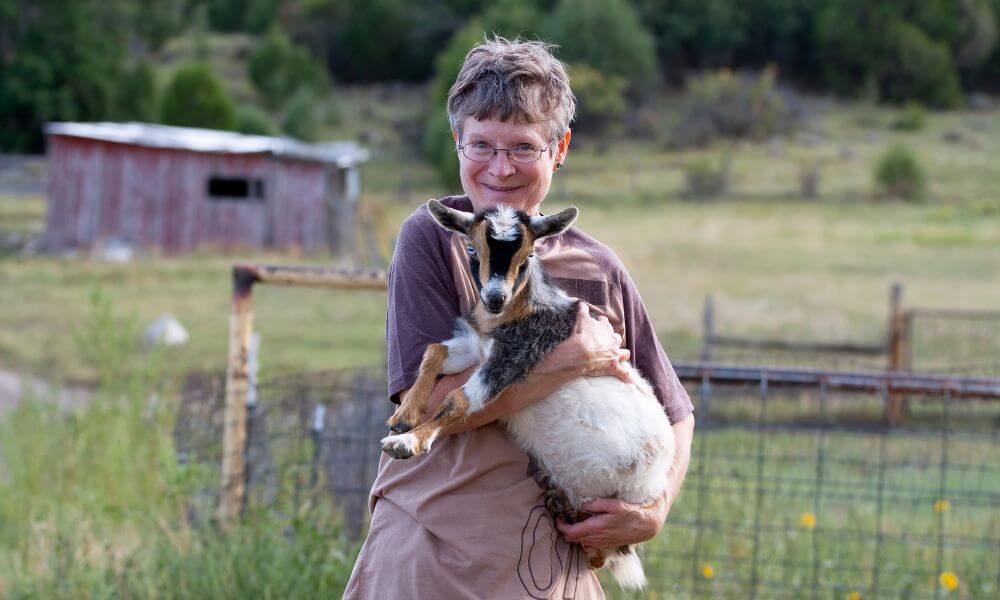Milking is often something new goat owners don’t take into account before purchasing their goats, and it can be something of a deal-breaker for people.
It can be a lot of work, but there’s no alternative—if your doe is lactating, she needs to be milked.
This is true of all breeds of goat.
Let’s look further into this.

Do Nigerian dwarf goats need to be milked?
Yes, they do, again, assuming they are lactating.
Though we might tend to forget this fact, goats and cows don’t simply produce milk at all times in their lives.
Just like any other mammal, they really only produce milk after they have given birth.
They have been bred to produce milk for a considerably longer time than most animals do.
Nonetheless, they need to have given birth to produce milk.
Nigerian dwarf goats are no different.
If they have kidded, they will be lactating for a good while and will need to be milked daily—perhaps even twice daily—during that time.
This is one of the biggest commitments you’ll need to prepare yourself for with goats if you intend on having milking goats.
You’re going to need to be able to put the time in to milk them twice a day.
What happens if you don’t, then?
What happens if you don’t milk a goat?
Because of the way goats and cows have been bred to produce the highest milk yield, they have a much harder time reabsorbing produced milk into their bodies.
Other mammals can do this to a degree, if milk is not used.
Nigerian dwarf goats, however, cannot do this.
Any milk that is not milked by you or drank by the kid will simply sit in the udder, until the udder becomes swollen, and painful.
This can cause a common udder infection called mastitis.
Serious health complications can arise from not milking your goats properly.
The only time you should slow or stop milking your goat is if you are actively trying to get her to dry up.
This will only work towards the end of the milking period, though, which can be up to a year after she starts lactating.
Like I said, not milking your goat is a serious matter.
She will develop serious health complications if she is not milked properly.
How often, then, do you have to milk them?
| Related Articles |
|---|
How often do you have to milk a Nigerian dwarf goat?
The simple answer is that it’s going to depend.
You’ll have to take stock of each individual animal, judge it based on size and apparent production capacity.
For the most part, if you’re just trying to keep them happy, once a day should be fine for a Nigerian dwarf goat.
You can milk them twice a day, and often this is done to ensure the goat’s ultimate comfort, but this can actually wind up producing more milk.
Once a day is typically fine just to keep them comfortable, then. but you should keep an eye on each goat.
If you’re only milking once a day and its udder still seems swollen, or it shows signs of discomfort, you might want to milk it twice per day.
Do all Nigerian dwarf goats produce milk?
All females do, yes.
At least, all females have the capacity to produce milk of their own.
Males do not, obviously, produce milk.
You don’t need to worry about milking a goat that doesn’t have an udder.
As far as all Nigerian dwarf females go, though, yes, they will produce milk if they don’t suffer from any specific health complications.
As I said, they will also only produce milk after having given birth for the first time.
But the simple answer is yes.
If you are buying Nigerian dwarf goats, you need to be fully aware of their milking needs and habits, especially if you plan on breeding them.
You need to be sure you have enough spare time to milk them every day.
This issue can be either a blessing or a curse, then.
If you’ve got the time to put in the milking, then you’ve got a constant supply of fresh milk that you can use for baking or anything you want.
On the other hand, if you don’t have the time but still want to keep the goats, then your goat’s health is going to suffer a great deal.
There is no option not to milk them—if you don’t, they will become seriously ill.
Keep this in mind before getting goats—it can be a lot of work.
